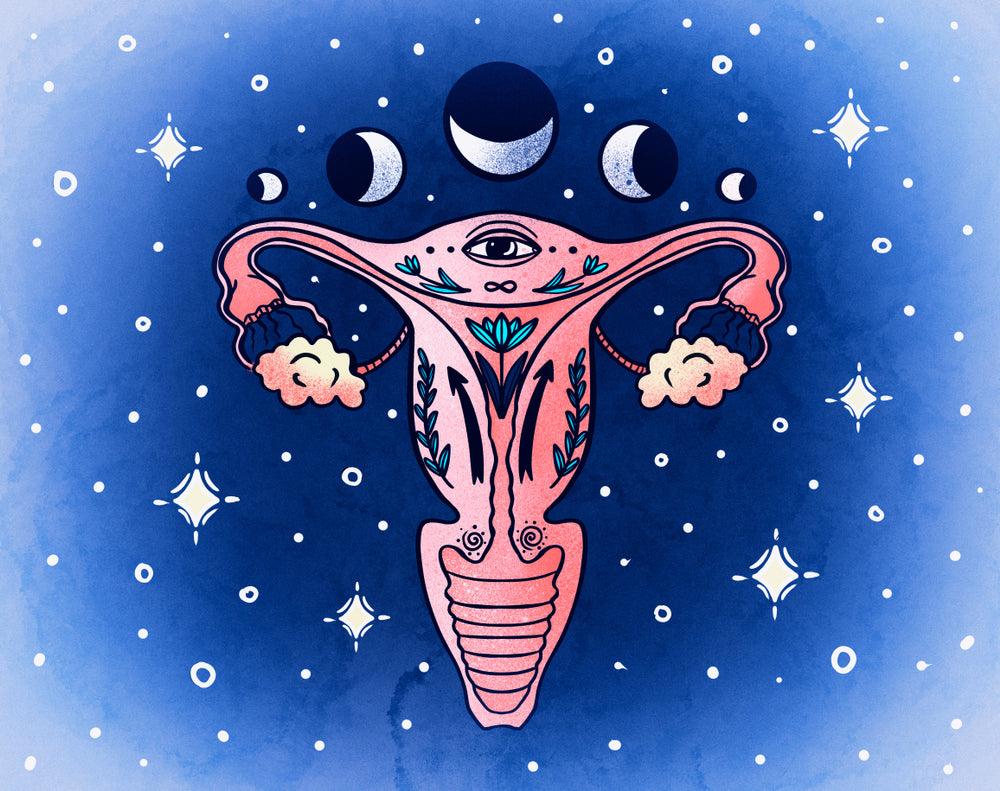Recent studies have suggested that menstrual cycles may be influenced by lunar cycles. This theory, which has been around for centuries, was widely dismissed by the scientific community until now. In this blog post, we'll explore the latest research on menstrual and lunar cycle synchronization and what it means for women.
The Cycle of Moon & Menstruation
The menstrual cycle is a complex physiological process that occurs over an average of 28 days. It is regulated by a complex interplay of hormones, which control the release of an egg from the ovary and the thickening of the uterine lining in preparation for pregnancy. The lunar cycle, on the other hand, is the 29.5-day cycle of the moon as it orbits the Earth. It has been suggested for centuries that these two cycles are related, and recent studies have provided scientific evidence to support this idea.
Shocking Results from Studies
One study, published in the journal Astrobiology in 2016, found that 22% of women experienced menstruation during the new moon, while 28% experienced menstruation during the full moon. The study's authors suggested that this was due to the gravitational pull of the moon on the Earth's oceans, which in turn affects the fluid levels in the human body. They also noted that the same hormonal changes that regulate the menstrual cycle may also be influenced by the lunar cycle.
Another study, published in the Journal of Obstetrics and Gynaecology Research in 2019, found that women who were exposed to bright light during the night had a higher likelihood of experiencing irregular menstrual cycles. This was attributed to the fact that exposure to artificial light disrupts the body's natural circadian rhythm, which may in turn affect the regulation of hormones that control the menstrual cycle. It means that if you are a “Night Owl” and exposing yourself to artificial lights then your body would not align or sync with the moon’s cycle.
While this study is certainly interesting, it is important to note that more research is needed to fully understand the relationship between menstrual cycles and moon cycles. It is also worth noting that not all women's menstrual cycles align with the moon phases and that there are many other factors that can affect menstrual cycles, such as stress, diet, and exercise.
Exploring the Connection:
The Synchronization of reproduction with the moon’s phases is well documented in ocean creatures such as plankton, crabs, fish, and corals. Helfrich-Förster,, a professor of neurobiology and genetics at the University of Würzburg in Germany mentions that, “Life evolved in the ocean. When life evolved on Earth, the moon was much closer to Earth. So probably the forces of the moon on Earth were also much larger.” Ancient organisms were likely more influenced by lunar cycles, and she says that if “the adaptation to this is still in our genes,” human responses to the moon could be a relic from our evolutionary past. "Nevertheless, most researchers are skeptical about the influence of the moon on human life."
Back to Cave Woman:
It is exciting to think that the cycles of the moon, which have been revered by many cultures throughout history, may have a tangible impact on our bodies and our health. However, if you want your body to sync to the moon then it wouldn't harm to get some moonlight every night and stay in the dark.
Overall, the recent news about menstrual cycles intermittently syncing with moon cycles is a fascinating development in the field of women's health, and one that is sure to generate further discussion and research in the years to come.

